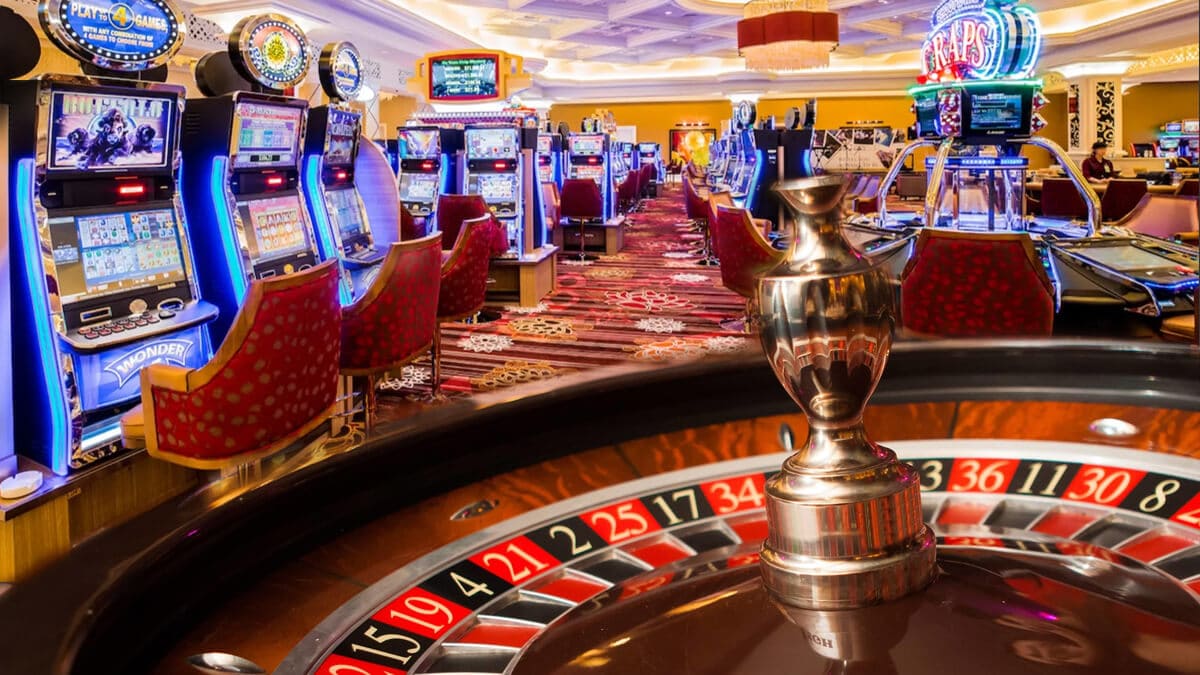
Gambling games have long been a staple in human culture, offering not just entertainment but a fascinating reflection of our dreams, wishes, and anxieties. From the turning reels of a slot machine to the strategic gameplay of poker, these games represent a range of human emotions and incidents. At their core, casino games are more than a chance to earn cash; they are a reflection of life itself, where danger and gain merge and fate can change in an moment.
As players assemble around tables or sit in front of vibrantly illuminated machines, they engage in a ceremony that transcends mere gambling. These games echo our innate desires for connection, excitement, and the pursuit of luck. They also disclose deeper truths about human behavior, such as our relationship with luck and the adrenaline of uncertainty. In exploring casino games, we reveal not only the nuances of play but also the complex weave of the human journey, showcasing our interconnected narratives of goal and reality.
The Mind Behind Gambling
Gambling is deeply rooted in human psychology, tapping into various feelings and wants. The thrill of taking risks is a core aspect that draws players in, be it it’s excitement of spinning a roulette or the anticipation of drawing a winning card in poker. This rush of adrenaline is often compared to other forms of thrill, as the uncertainty of outcomes elicits a unique psychological response. Gamblers often become captivated by the chance of striking it rich, leading to an irresistible draw toward gambling games.
Additionally, an essential component of the psychology behind gambling is the concept of optimism and aspiration. สล็อต RICHES888 Participants often indulge in dreams of financial freedom and the opulent lifestyle that can accompany winning. This optimism fuels their continued participation in gambling, as it provides a sense of meaning and the conviction that a life-changing win could be just one wager away. The story of overcoming odds and achieving success resonates with many, reinforcing their dedication to play and engage with these games.
Lastly, social dynamics play a significant role in gambling psychology. Casino environments are designed to promote social interaction, where players gather to share the experience of wins and losses. This shared aspect not only enhances enjoyment but also influences behavior, as individuals often mimic the actions of others in their vicinity. The social validation found in mutual thrill can magnify the emotional experience, making casino games a reflection of not just personal desires but also shared involvement within the gambling community.
### Risk and Reward: A Double-Edged Sword
Casino games embody the subtle balance between risk and reward that resonates profoundly with the human experience. The thrill of placing a bet is often accompanied by a surge of excitement, as players are confronted with the chance of winning big, yet fully aware of the possibility to suffer losses. This dual experience reflects a core aspect of life: the decisions we face often come with intrinsic risks, and the pursuit of reward can drive us to make risky moves we might not normally consider. In this way, casino games echo real-world choices, enticing players to risk not just their capital, but also their aspirations.
The allure of grand jackpots and winnings fuels a wave of hope, inspiring players to envision a more promising future that could emerge from a single victorious spin of the wheel or turn of a card. This hope can motivate individuals to engage in riskier behaviors, pushing them to extend their limits in search of financial gain. However, just as in life, the outcomes of these risks can lead to both triumph and failure. The narratives of both jackpot winners and those who have suffered everything at the tables demonstrate the random nature of chance and its consequential repercussions on our existence.
Ultimately, the interaction of engaging with casino games serves as a potent reminder of the nature of humanity. Every round played is loaded with the tension of risk, as players weigh the gains against the dangers. This balance not only highlights the thrill that comes with gambling but also exposes the risks that come with the urge for more. As we explore the challenges of decision-making and results in both the gambling world and in life, we find that the quest for gain shapes our identities and journeys in significant manners.
Society and Isolation in Gambling Culture
Gambling environment is a distinct combination of communal engagement and individual endeavor, reflecting the tensions of human experience. Players often gather around games, experiencing in the thrill of the game, rejoicing in wins, and sympathizing over losses. This social aspect is essential, as it creates a sense of belonging and bonding among diverse groups of individuals. Regular attendees to gaming establishments may build friendships and establish routines, turning the gambling venue into a alternative home where they feel connected to a larger community of gamblers.
However, the appeal of casino activities can also lead to isolation. As individuals become engrossed in the excitement of gambling, they may withdraw from personal connections or neglect to engage with the environment outside the gaming space. For some, the pursuit of a windfall can distract from genuine connections, leading to isolation. The situation of being surrounded others yet feeling solitary is not uncommon, as the attention shifts from collective fun to the private concerns of each player’s path.
This interplay of society and solitude creates a rich mosaic that defines casino atmosphere. It showcases the intricacy of human interactions, where happiness and despair exist together. Gambling venues serve as both a refuge for social engagement and a platform for individual challenges, demonstrating how intimately connected our desire for connection and the personal quest for fortune can be. In navigating this landscape, players confront their own narratives—seeking both the thrill of the game and the companionship of fellow players, eventually reflecting the wider spectrum of human experience.